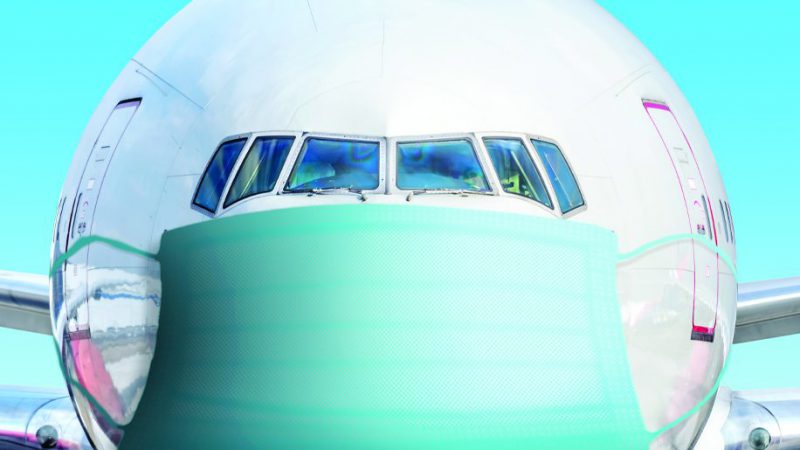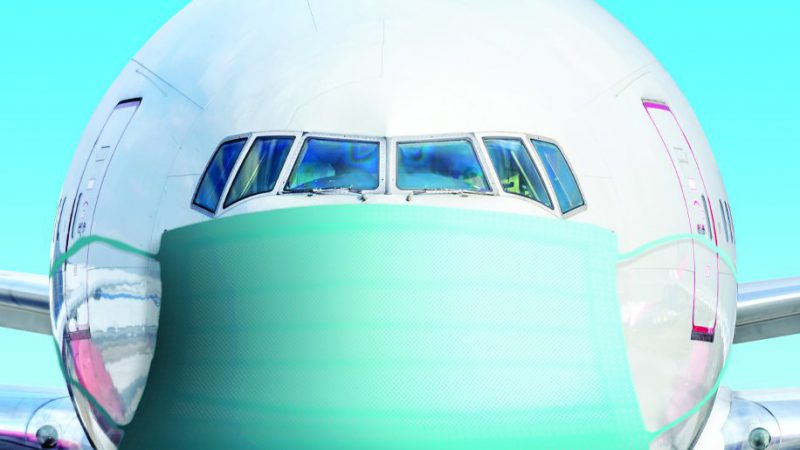DOT Coronavirus Guidance: Too Little, Too Late?
FlyersRights.org scores DOT for doubling down on its laissez-faire approach
July 9, 2020

The Department of Transportation invited FlyersRights.org and other consumer organizations to a conference call this earlier week to discuss the DOT’s coronavirus response. Not surprisingly the comments were not all cheer and appreciation.
FlyersRights.org, for one, strongly criticized the joint Departments of Transportation (DOT), Homeland Security (DHS) and Health & Human Services (HHS) for their “Runway to Recovery” plan guidelines released this week, which does not require airlines and airports to follow the measures recommended by the report.
The plan stops short of mandates saying, “all persons in the air transportation system, including passengers, have a responsibility to themselves and to others to make every effort to minimize the risk of virus transmission as we respond to and recover from COVID-19.”
Despite the continually rising waves of COVID cases, DOT has refused to mandate that all passengers wear masks or appropriate face coverings to minimize the spread of the coronavirus. Instead, the DOT will continue to allow airlines to develop and enforce their own unique coronavirus responses.
Paul Hudson, President of FlyersRights.org noted, “The US Federal Government has abdicated its responsibility to help stop the spread of the coronavirus through domestic air travel. Regulation of air travel is solely a federal issue, but the DOT refuses to mandate rules on masks, social distancing, cleaning, and measures to discourage travelers from non-essential travel or travel when sick. Unless President Trump and/or Congress reverse the current no health safety regulation policy for air travel, confusion and fear will reign as US travelers are blackballed internationally, airlines go bankrupt, and thousands more are sickened.”
FlyersRights.org also contends that the airlines have the legal duty to issue refunds to passengers who cancel their flights if they have been diagnosed with Covid-19, display symptoms of Covid-19, or if a state stay-at-home order prohibits non-essential travel. Meanwhile, the airlines have tied up much of the DOT’s resources by not consistently providing refunds when the airlines cancel flights or impose a significant schedule change.
For months, the scientific consensus has recognized the need for widespread mask wearing and social distancing. FlyersRights.org called on the airlines to require masks for all passengers and flight attendants in April, as well as to improve social distancing and cleaning measures.
In a recent survey conducted and published through the International Air Transport Association (IATA) health concerns for travel during the ongoing pandemic remained at top of mind. Travelers are taking precautions to protect themselves from COVID-19 with 77 percent saying that they are washing their hands more frequently, 71 percent avoiding large meetings and 67 percent saying they wear a facemask in public. Some 58 percent of those surveyed said that they have avoided air travel, with 33 percent suggesting that they will avoid travel in future as a continued measure to reduce the risk of catching COVID-19.




